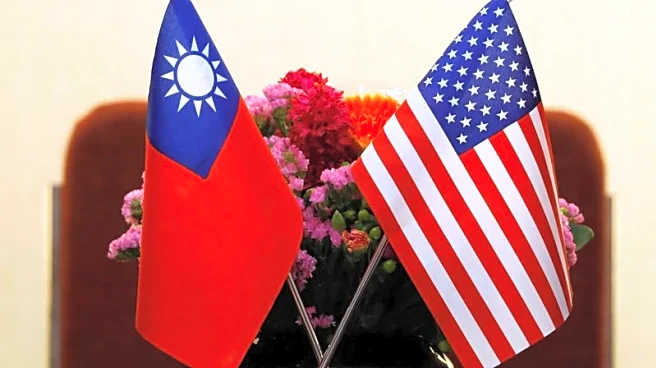
There was a time when the Cleveland Browns won a lot of games every season. The playoffs were a mainstay, and league trophies were routinely collected.
That hasn’t happened in quite a while. In 2023, the
club won 11 games, and with that being a positive note, there were thoughts and hopes that just maybe, this franchise could put a string together of being successful and going to the postseason year after year.
Then, the Browns lost 14 games last year with almost the exact same roster and coaching staff. It was like, what happened?
And the winning season streak died at one. Bummer.
A 14-loss season is usually a signal to fire the head coach and/or the GM. Everyone in the front office, coaching staff, and the players’ roster realizes that this must change.
This year.
Already, the media is picking Cleveland to win anywhere from three to six games this season. If that becomes factual, expect heads to roll at many levels.
As far as the roster goes, this year the starting quarterback will be a different guy. Three new linebackers will start for the defense, along with one defensive end and safety, and possibly a defensive tackle.
New players will dot all four special teams units, and the team has a new starting long snapper.
Also on board are several new coaches, and a new OC when TE coach Tommy Rees was elevated.
The owners of the Browns, Dee and Jimmy Haslam, gave a press conference before Tuesday’s practice. They haven’t gathered for the press since the April NFL draft, so there was a lot to cover. Here is what was asked and said about this year’s version of the Cleveland Browns.
To start off with, Dee mentioned the attack on the NFL offices and stated their thoughts and prayers were with all the families that have lost their loved ones, and that they honor the policemen who also died in the line of duty with prayers sent to the ones that were injured.
Q: The season hasn’t even started yet, and the Browns are already being linked to Arch Manning. Is this your comment about the buzz, the potential buzz as the season goes along?
Jimmy: Well, you’re in the business and you get paid by how many hits you get, okay? And I think if you know the Manning family, I would bet that — and I don’t know Arch (Manning) at all — I bet he stays in college two years, so I don’t even think that’s worth discussing.
/cdn.vox-cdn.com/uploads/chorus_asset/file/26072943/1496727018.jpg) Photo by Nick Cammett/Getty Images
Photo by Nick Cammett/Getty ImagesQ: Back in March, you talked about being patient about the quarterback. Does that patience also kind of extend to allowing Kevin (Stefanski) the opportunity to, when you find that guy, have the opportunity to work with him?
Jimmy: Absolutely. Absolutely.
Q: In terms of wins, what would be a successful season?
Jimmy: You really think we’re going to answer that? We’ve got to do better than three, okay? To put a number on it, I don’t think we will ever do that. Everybody - coaches, players, personnel, ownership, all know that 3-14 won’t cut it. We’ve got to do better. I think we’ll know what better looks like.
Q: Can you address how you can help fans understand that you guys do care about the health and safety of women, since you’ve had three guys since last year, with domestic violence incidents?
Jimmy: Yeah, great question. Let me say it’s extremely frustrating, okay? Obviously, we’re not communicating as well as we should, and we take responsibility for that. We talk internally, we have internal resources, and we have external resources. We talk about it continually, and it’s something that we need to do a better job on. But it is frustrating.
Dee: Yeah, it’s a big focus for us in the organization, so thanks for asking.
Q: It’s a repeated instance – three different players in a year. Is that reflective of your team’s vetting process?
Jimmy: That’s a question I ask. Okay, let’s go back and let’s look at Quinshon (Judkins), let’s look at Devin (Bush), let’s look at Mike Hall Jr. And there was to the best of my knowledge, and we talked about this yesterday with Andrew (Berry), there was nothing in any of their backgrounds that showed anything like this.
Q: Have these incidents maybe changed your approach, or maybe prompted more resources that you guys are looking into?
Jimmy: Well, I think whenever you’re not successful, you’ve got to take a step back and say, ‘What can we do better?’ If you’d asked me a month ago, I would say no. We’re all over it. We talk about it continually. We’ve had outside speakers, inside speakers. We talk about it a lot. But clearly, we need to look to see what else we can do. It’s not acceptable.
Q: Do you expect Quinshon Judkins to eventually sign and play for you?
Jimmy: I do, but that’s, you know, we all understand due process, the law, and the law does not move quickly. But yes, we’re cautiously optimistic.
Q: You haven’t talked to or had any contact with Quinshon (Judkins) in the last month?
Jimmy: No.
/cdn.vox-cdn.com/uploads/chorus_asset/file/26072955/usa_today_26416540.jpg) Ken Blaze-Imagn Images
Ken Blaze-Imagn ImagesQ: We haven’t talked to you since the draft. So, can you explain why the Browns felt the need to draft Shedeur (Sanders) after drafting a quarterback in the third round and adding two veterans?
Jimmy: Well, I think that’s really more of an Andrew (Berry) question. But I think — what was that pick? 146? We thought he was good value at 146.
Q: There’s been kind of like a national narrative that you were a person who forced the Shedeur (Sanders) pick, or maybe people have called it the “owner pick.” What would you say to that?
Jimmy: Yeah, listen, we have a good process, okay? And if you’d have told me, let’s see, we picked him on Saturday, right? Friday night, driving home, y’all are gonna pick Shedeur (Sanders). I would say that that’s not happening. But we had a conversation early that morning, and then we had a conversation later that day. I think we had the right people involved in the conversation. At the end of the day, that’s Andrew Berry’s call. Andrew (Berry) made the call to pick Shedeur (Sanders). Just like who’s going to start or what play we’re going to call is Kevin’s (Stefanski) call. But that’s Andrew’s (Berry) call. He made the call.
Q: You obviously signed off on the trade on the first night of the draft.
Jimmy: Correct.
Q: Was that a tough sell to you or an easy sell?
Jimmy: Those are hard decisions. Listen, Travis Hunter is a special football player, and I do think he can play both ways, and I think he’ll do well. He’s also a great kid. Not a good, but a great kid. So, we were locked in on that. And then the opportunity came up, and you go back three places, and we thought there were really good players, and we think we got a good one, really good one in Mason (Graham). And then to add, really, almost a first-round pick with a 36th pick and to have a number one next year, we just thought was too good to pass up. Time will tell whether we did the right thing or not.
Q: Last time we talked to you at the owners’ meetings, you delivered the quote heard around the NFL that Deshaun (Watson) was a “big swing and a miss.” He’s here, he’s on PUP. Do you see a world in which he ever can play football for you guys again?
Jimmy: I think it’s premature. I don’t think anything’s changed on the Deshaun (Watson) situation since we were together in March. I will say this, he’s working hard on his rehab and that’s our focus, to get him well and healthy, and then we’ll make decisions after that.
/cdn.vox-cdn.com/uploads/chorus_asset/file/26072945/2181366187.jpg) Photo by Nick Cammett/Getty Images
Photo by Nick Cammett/Getty ImagesQ: What have you learned about building a team since you bought one?
Jimmy: You’d think it doesn’t look like very much. No, I say it’s hard and you make mistakes and the business world we come in, you can hire anytime you want to, okay? There’s no seasonal, there’s no draft. And so, you can build a team over a period of time almost at free – there’s no draft, there’s no free agency that under no control. So, it’s obviously not easy. We made the decision last year to take a step back after last year’s disaster. And looking at our roster and knowing that we needed a quarterback to do this over a two-or three-year period, it’s too early to say, but we like our rookie group. We’ll know a lot more after we play two or three exhibition games, and young guys get to play a lot. But we like the group, and particularly if Q (Quinshon Judkins) can come back. We like it a lot.
Q: With four quarterbacks battling it out, Kenny’s (Pickett) hurt now, but it’s so rare to see this many quarterbacks competing for a starting job on a team. Just how do you think Kevin (Stefanski) and Andrew (Berry) and everyone has sort of handled that in the early portion of camp?
Jimmy: Really well. And that was a concern we had, like how do you make sure everybody gets enough plays, enough looks, etc. And I hate it for Kenny (Pickett) because we played really well the two or three days before he got hurt. And there’s nobody who wants to be part of the team more than Kenny (Pickett). He’s working hard, and I know he’ll get back quickly, but I think so far, they’ve handled it well. And something that Kevin (Stefanski) and Andrew (Berry) talk about weekly – ‘Here’s the plan for this week,’ and I think going to Carolina and scrimmaging and then playing, and then we’re going to Philly and have two days of scrimmages and then playing. The young guys will get a lot of looks, as will the veterans in the scrimmages. So, we’ll know a lot more in the next couple of weeks.
Q: I know you said it’s Kevin’s (Stefanski) decision who plays, but organizationally, do you think it’s important you talk about we need to see these rookies in a game situation before you have two first-round picks in 2026?
Jimmy: Absolutely, absolutely. Kevin (Stefanski) is aware of that; he knows how important the quarterback is, and he and Andrew (Berry) talk about those kinds of things all the time. It’s a daily, ongoing conversation.
Q: People always talk about patience as an organizational value. What does that look like? What does patience look like?
Jimmy: Well, I think it’s, it’s what we’ve just talked about. We realized that we went 3-14. There was great uncertainty at quarterback. You probably weren’t going to go 14-3. So, let’s try to build the team the right way. And I’m repeating myself, and it’s premature, but I like the guys we picked. And time will tell how good they are. But Mason (Graham), Carson (Schwesinger), (Harold) Fannin Jr., Shedeur (Sanders), Dillon (Gabriel), etc. look like, Dylan Sampson, look like not only really good players, but really good people. And I’ll say this for the two quarterbacks coming in, and I know everybody has a vision of Shedeur (Sanders), but he’s come in, in the building, worked hard, kept his head down and done what he’s supposed to do, as has Dillon (Gabriel), which was no surprise for either of them.
/cdn.vox-cdn.com/uploads/chorus_asset/file/26072946/1420210347.jpg) Photo by Jason Miller/Getty Images
Photo by Jason Miller/Getty ImagesQ: How do you feel about how this organization is wrapped around the developmental part, getting guys ready, the depth piece?
Jimmy: That’s the challenge in sports, because if you’re a head coach, you’re charged with winning every week, but you also want to develop young players. And I think Kevin (Stefanski) has this period after; I think he calls it the ‘Hungry Dawg’ period. I might be wrong about that. But after practice, where it might be six plays, it might be 10 plays that they get plays in or extra work, and I think that’s really important, really important to develop young guys. Because we saw it with two or three quarterbacks, not everybody, particularly a quarterback, makes it the first year or two. This is a big jump going from college to the NFL, whether you’re a quarterback or not. So, I think we’re doing a good job there, but time will tell.
Q: You mentioned that two-to-three-year window and kind of player development. Is there kind of an understanding that maybe this might take time for you guys to get back to?
Jimmy: Yeah, we talk about it openly. We talk about it openly. Now, could we take a big jump in one year? Yes, but we talk about we’re not going to panic. We’re going to draft good players, we’re going to build through the draft, and next year we have nine picks, including two ones. So that should help us. I think you have to realize that we went three years with no ones, and I think at least one of those years we didn’t have a two, in maybe two of those years. And that hurts you roster wise, and it just does. And the players that are available in the first round, the chances of them being successful are way better than second and second’s better than third, etc. So, we’re going to continue to stockpile those draft picks.
Q: How do you convince fans that to get your message across to them that this is a building process because you know how loyal they are and how frustrated they are?
Jimmy: Well, listen, we’re frustrated too. And we share the fans’ pain, okay? And we – Dee says this all the time. We’re stewards of this franchise, and we need to do a better job. And we want to win for a lot of different reasons. The main reason we want to win is for our fans. They really do. We have great fans.
/cdn.vox-cdn.com/uploads/chorus_asset/file/26072948/2227015533.jpg) Photo by Jason Miller/Getty Images
Photo by Jason Miller/Getty ImagesQ: With that type of philosophy, sort of a little bit of a patient attitude for this season. What does that mean for Kevin Stefanski? Because people are already asking if he’s on the hot seat.
Jimmy: Yeah, listen, you all, we talk to you all fairly frequently, and we’re very supportive of Kevin (Stefanski) and Andrew (Berry). Now do they need to do better? Yeah, but so do Dee (Haslam) and I. You know what I mean? And these are high-pressure jobs they have, but we really like them in their roles as coach and GM, and we really like them as people. And I say this all the time. They’re 38 and 42 years old.
Q: How much has that patient approach, how much have you guys kind of talked about your history owning the team? Just how much have you kind of learned that?
Jimmy: I think we did a poor job early on, and hopefully we’re doing a better job now. And listen, we talk about it organizationally. This isn’t just ownership, but we talk about it — all Andrew’s (Berry) staff, all Kevin’s (Stefanski) staff, everybody is aware of the plan, and that’s how good teams work together.
Q: What can you tell us about the last $600 million you’ve said you needed for the dome? The county says it won’t pay. Where will that money come from, do you know yet?
Jimmy: Yeah, really good question. First of all, most appreciative of the state of Ohio, as we said earlier. What we said all along is we hoped there was $600 million available locally, I think, through Brook Park and the mechanisms we put in place, that’s $300 [million]. So that leaves you $300 [million] short. What I would say is this big picture. And we never. I know it frustrates you all. We never want to front-run the people. And so, with the state of Ohio, we never talk publicly about how things might get financed. And by the way, our plan isn’t what they used to come up with the $600 million. I don’t want to do the same thing with the county. What I would say is now is the time to work together. Maybe it doesn’t work out with the county, but now’s the time to sit down and see if we can’t work together. This is an important project. I don’t think many other entities are spending two billion-plus in this community.
Dee: And we are located in the county, so we will be working with the county.
/cdn.vox-cdn.com/uploads/chorus_asset/file/26072949/2156385432.jpg) Photo by Arturo Holmes/Getty Images for National Urban League
Photo by Arturo Holmes/Getty Images for National Urban LeagueQ: The Mayor of Cleveland has said that he doesn’t want his lakefront left without getting anything. Have you reached out to the mayor?
Dee: Yeah, I think we started with the vision of the lakefront a long time ago, and we believe strongly that the lakefront needs to be developed. I feel like we have put a lot of input and energy into what that vision could be. So, we have not had further conversations recently. But we care about this community so deeply, and I think the lakefront is a really important part of that.
Q: How confident are you that you’ll be able to make the Brook Park project happen at this point?
Jimmy: 99.9%. We can’t be more confident. Let me say, these projects are really hard, okay? And the state’s a hurdle. There are other hurdles. You got to work with DOT (Department of Transportation) and Rapid Transit. You gotta get your financing, you gotta control costs. These are big, complicated projects. This is either the second or largest project in the State of Ohio history. So, this is a complicated project. There’s stuff going on. It’s three and a half years till the stadium opens, and we will have to work hard every day to get everything to come together.
Dee: We’re very confident, very excited about it.
Q: When will the groundbreaking be?
Dee: Sometime next year.
Q: So like February next year?
Dee: We’re hoping.
Jimmy: Yeah, that’s fair.
Q: So, you’re 99.9% on this, to get to that groundbreaking early next year, what in your mind is a timetable to know one way or the other whether the county’s going to be part of this, whether this authority is going to be set up in Brook Park? What’s the timetable to get to that groundbreaking?
Jimmy: So, we’re going to have the groundbreaking regardless, okay? Let me say this and try to be very respectful of everybody. What we said is we can do the project without the county, okay? I think it’s best if the county and HSG (Haslam Sports Group) work together. And I won’t say anything more than that. I just think it’s helpful in this community to work with the city, to work with the county, and to work with the other sports teams.
/cdn.vox-cdn.com/uploads/chorus_asset/file/26040419/Brook_Park.png)
Q: One of the chief points of opposition to the Brook Park project that was made was that it would harm Downtown Cleveland. Obviously, there are big plans for the riverfront now, and the lakefront is opening up. Just from your perspective, how confident are you that this region can support all three major developments and that they to be successful?
Dee: They’re all three very different. And we believe in Cleveland. We believe in a growth mindset, we believe in economic development, and we believe that this could be one of the greatest communities out there. But you have to have that vision, and you have to have that growth mindset. And we believe that we can take care of our fans and provide economic development by doing the Brook Park project.
Jimmy: Let me just say one more thing, excuse me. I think this. Think of them as four different projects. The riverfront project that Bedrock’s doing is already underway. Got a good, good start with their practice facility and the clinic facility. That’s probably a 15-20-year project. The lakefront, due to the fact that we’re going to be playing there through ’28, probably. And you have to get the infrastructure in place. Doesn’t start until ’29 or ’30, which is, you know, basically five years from now. Our project will start late this fall, early next year. And the airport will start about that same time too. So, you’ll have going on in Brook Park and the airport, and that’ll happen simultaneously. We’re open in ’29. They’re supposed to be open in ’31. Bedrock is…I don’t want to say, think of it as running a marathon, which will be ongoing for the next 15 years. The lakefront will start in five years. So, it’s not like all four of them are starting at the same time. Here again, those are complicated, not easy projects. I would say one other thing is to think about being additive, like try to add to the pie. That’s what growing successful communities do. Let’s try to add to the pie. And that’s what I think we’re all trying to do. And hopefully that’ll happen if we work together.
Dee: We can write a great story for Cleveland that people from everywhere will look at what Cleveland’s doing and how exciting it is with all these projects. So that’s the story that really needs to come out.
Q: You’re talking about three and a half years to build a stadium, which isn’t that much longer than it took to build the current one, which I know people have described as hastily built. So, what’s your confidence level that you’re going to be able to build a quality product on that timeline?
Jimmy: I really am.
Q: Why?
Jimmy: Well, I would say this. I don’t know if it was hastily built or hastily designed, but I think common sense would dictate that you would not have 2/3 of your seats in the upper deck and a third in the lower deck. And remember, we’ve been seriously working on stadium plans for three or four years. So, it didn’t just all come together. So, we’ve been working on it, and we’re continually working to refine it.
Q: How much of a concern is the legal? You know, we have these two lawsuits hanging over everything. How much of a concern is the legal fight that you’re still having to do?
Jimmy: The state would need to comment on the unclaimed funds.
Q: I don’t mean funds. I’m talking about like the city.
Jimmy: Listen, I’m not an attorney, but I don’t think the intention was to keep a team from moving 12 miles to live up to the lease they’re in and to contribute $2-3 billion to the community. I don’t think that’s what the “Modell Law” was for. We’re cautious that we can work, cautiously optimistic that we can work things out with the city.
/cdn.vox-cdn.com/uploads/chorus_asset/file/26072958/usa_today_24022602.jpg) Jeff Lange / USA TODAY NETWORK
Jeff Lange / USA TODAY NETWORKQ: With you guys being so busy with your project here and with the stadium, what do you think your involvement will be with the lakefront when it comes time to do that? What will your role be?
Dee: We don’t know that because we haven’t been involved in the conversations of what they’re planning on doing, but you know, obviously we care about Cleveland, and we definitely want to see the lakefront done.
Q: The estimated capacity of the stadium is 65 to 66,000?
Jimmy: 65,000, 66,000 with a room to go to 68,000 to 70,000.
Q: That would seem to disqualify that as a Super Bowl site.
Jimmy: I don’t know about that. I think what the (NFL) Commissioner said when he was here is or maybe it’s when we were in Columbus, I can’t remember – is, listen, the stadium is going to be Super Bowl ready. The question is, does the community have enough resources, hotels, etc., to support a Super Bowl? And listen, I think Nashville will get a Super Bowl in the next four or five years. If you’d asked me 10 years ago, would Nashville get a Super Bowl? I would have said no. So, we don’t rule out anything.
Q: Would you guys be more willing to get involved in that lakefront project if the county came and said, “Yeah, I think we should invest this $300 million?”
Jimmy: We’re happy to sit down and talk with anybody who wants to figure out how to work together and move the community forward.
Q: This is part of the lakefront. Are you willing or contemplating contributing cash either up front or over time to help that happen in the future?
Jimmy: I would say what I said. We’re willing to sit down with anybody and try to work through. I don’t think you can comment on one issue in a vacuum, but we’re willing to sit down with the city, and I think we can work with the city really well on a lot of different issues. But you’ve got to sit down and talk first.
Q: But such a cash offer hasn’t been made yet?
Jimmy: There were offers made earlier. The talks were put on hold. Hopefully, the talks will pick up again. And it’d be inappropriate for me to say anything else.
Q: Are you willing to pay to demolish the existing stadium?
Jimmy: I don’t want to make that comment in a vacuum. Let’s sit down and see what all the needs are, how else we might be able to help, etc. I don’t think you can fault our involvement in the community.
Q: The talk here is centered on the huge cost of $2.4 billion to build the stadium. Where are you in terms of how we see the bills on Gateway that come up, you know, when it’s 20, 30 years old? Yeah, where’s that money going to come from?
Jimmy: I’ll say this, and I know it sounds like I sound like a broken record. If all three teams work together on a, quote, sin tax, that can be solved.
/cdn.vox-cdn.com/uploads/chorus_asset/file/24420500/usa_today_19513688.jpg) Scott Galvin-USA TODAY Sports
Scott Galvin-USA TODAY SportsQ: You talked about not wanting to put anything over on the people of Cleveland and Northeast Ohio. How much do you envision TSL being part of the ticketing structure once you get to that point?
Jimmy: The whole pricing of the stadium and marketing of the stadium is something we’re working on, and I think we’ll have a better feel for that in the next 6-12 months.
Q: A lot of people, including the county executives. I shouldn’t say a lot of people, some people, including the county executive, are saying the dome’s going to be a flop. What’s your response to that?
Dee: We have really smart people involved in the process, and everybody is very excited about it. We’re getting calls on people wanting to be part of the development around it. So, we feel really excited about it. It’s kind of a front door to Cleveland. When you look at it, when you land at the airport or when you drive in, you’re going to be passing by that development in the dome stadium. It’s going to be the only one in Ohio. It’s really one of the few dome stadiums on the East Coast. So, we’re incredibly optimistic and excited about it. So, thanks, everybody. We really appreciate it. Glad you’re here at camp.
What stood out to you from the Haslam press conference?
More from dawgsbynature.com:
- ESPN drops some news about the Browns’ quarterback situation
- NFL picks and predictions for Week 2
- Daily Dawg Chow: Browns news (9/16/16)
- Browns’ Color Rush uniforms unveiled, but Cleveland won’t get to wear them in 2016
- Film Study: Browns’ only TD drive vs. Eagles
- Film Study: Browns’ 1st three offensive series vs. Eagles - All 3-and-outs, with a botched fake
- Daily Dawg Chow: Browns news (9/15/16)













